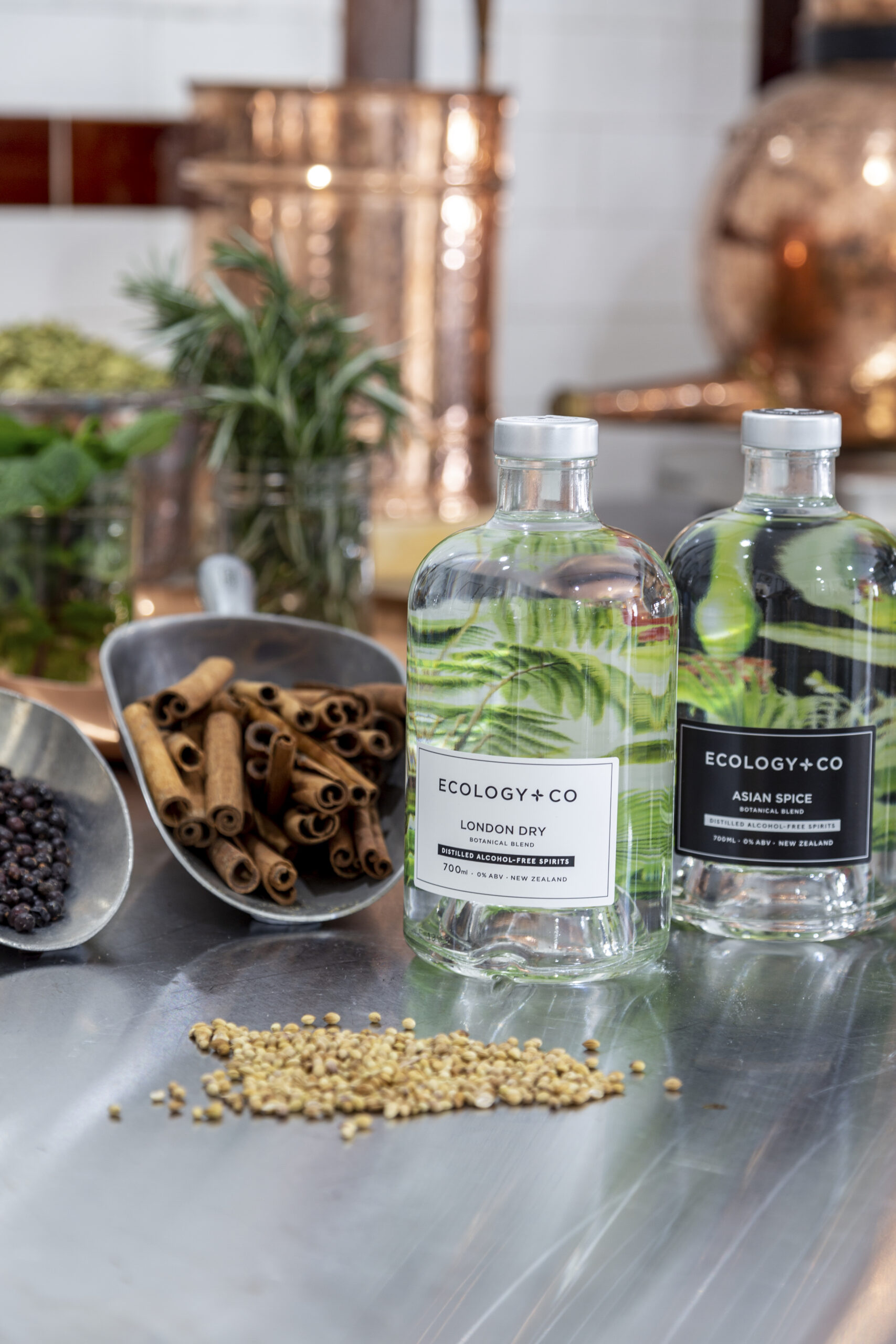When Di and Will Miller decided to found one of the world’s first alcohol-free distilleries they knew they would be forging new ground. They were focused on making truly alcohol-free distilled spirits with sophisticated flavour profiles to rival the best gins. The technical skill and artistry needed to create such aromatically complex drinks using solely water instead of alcohol is significant, and the road was challenging. Luckily both the Millers and The Alembics Lab love a good challenge.
Ecology & Co was founded after Will’s experiments with alcohol-free gin—made for Di when she became unable to drink alcohol after the birth of their daughter—became a hit with all their friends. Soon the interest grew so large that they decided to launch it commercially.
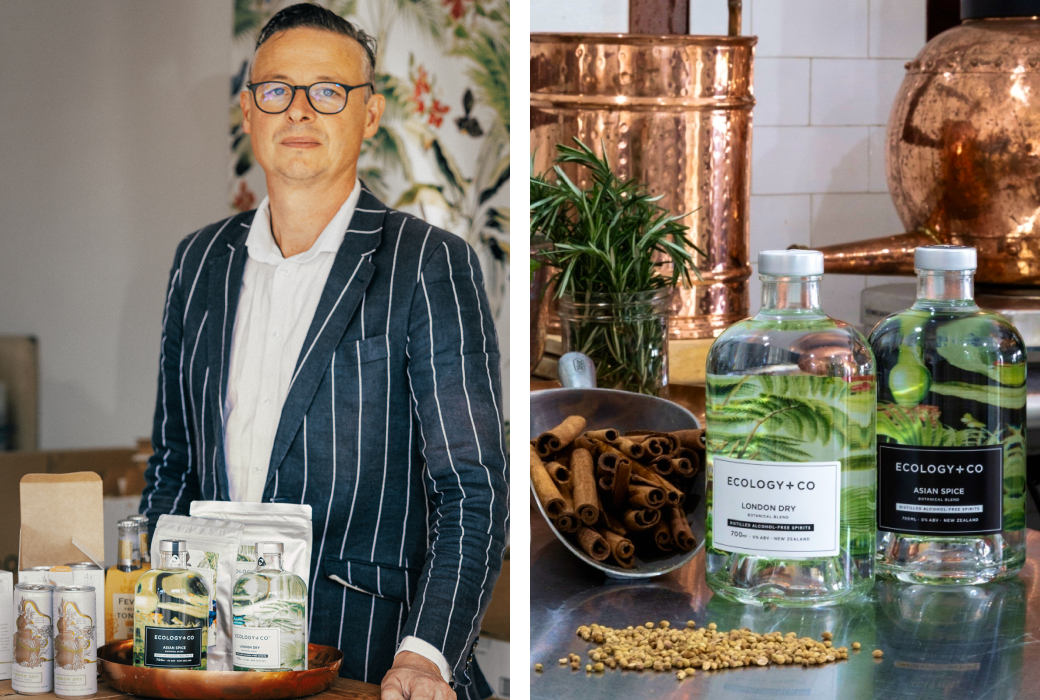
Up to this point, Will had been distilling these blends in his 3L Appliance still, (bought for him as a birthday present after he attended an Alembics Lab workshop). Scaling up production required a different approach to both technique and recipes—they needed to formulate commercial blends that not only tasted great but also had a stable shelf-life.
Their first step was contacting Jill Mulvaney for help with product development. “We needed to perfect the flavours, and who better to go and ask for help from than Jill, who Will knew was an expert in hydrosols, having done one of her aromatics courses” recalls Di.
Jill has worked with distilled aromatic waters—hydrosol or hydrolat—for over 15 years. When she started distilling, very few people had heard of hydrosol and fewer still appreciated their potential. This has shifted over time, but there were still very few businesses utilising hydrosol in the way Will and Di were proposing, and Jill was keen to see them succeed.
When you aim to create distilled non-alcoholic spirits that will rival traditional alcoholic spirits such as gin for flavour, you can’t simply replace water for alcohol in that process because as solvents, they work quite differently. Solubility is based on the principle of ‘like dissolves like’—meaning polar (water soluble) substances are soluble with each other, and nonpolar (soluble in fat and oil) substances are soluble with each other.
Ethanol is such an excellent solvent because it has both polar and non-polar constituents, so it can extract a broader range of flavour from botanicals. Water is a completely different medium, and as a solvent it only extracts polar compounds. So you have to build flavour quite differently.
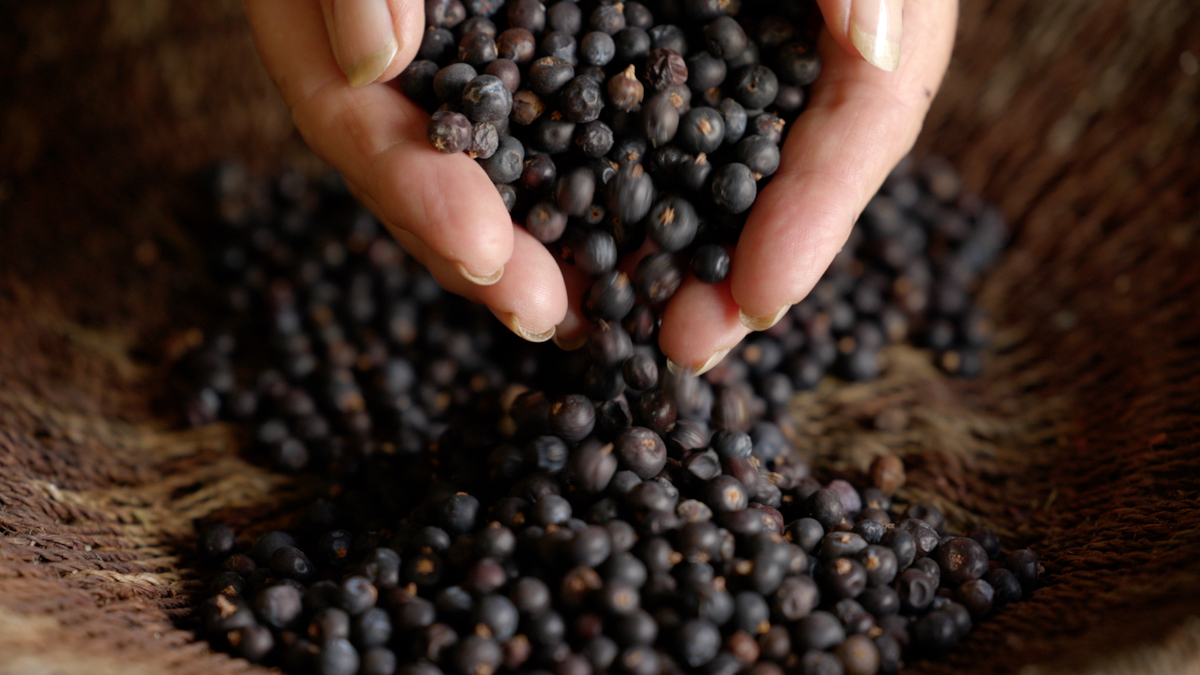
So began their time working together on what Jill says was “one of the hardest and most challenging things we’ve ever done”. But it’s also the kind of project she relished “because as a product developer, we were able to chart new territory—this was the first of its kind.”
After many tests and iterations, they settled on their final blends. After Will studied at the Institute of Brewing and Distilling in Scotland to perfect the set-up, Ecology & Co opened its doors.
So what does this set up look like now?
The distilling set up at Ecology is specifically tailored to meet the needs of using water to extract flavour. “The difference between an alcoholic distillation and a water-based distillation is that for the latter we have to use far more botanicals per batch” explains Will. This (plus the need for commercial volumes of the product) has translated into using much bigger stills—and more of them. As we grew we graduated to the 30L traditional alembic in an attempt to scale up, but soon realised we wanted to distil all of the different herbs and spices individually—so we now have a range of stills suitable for different botanicals, and some of the portfolio has now moved up to 100L and 500L stainless steel stills.
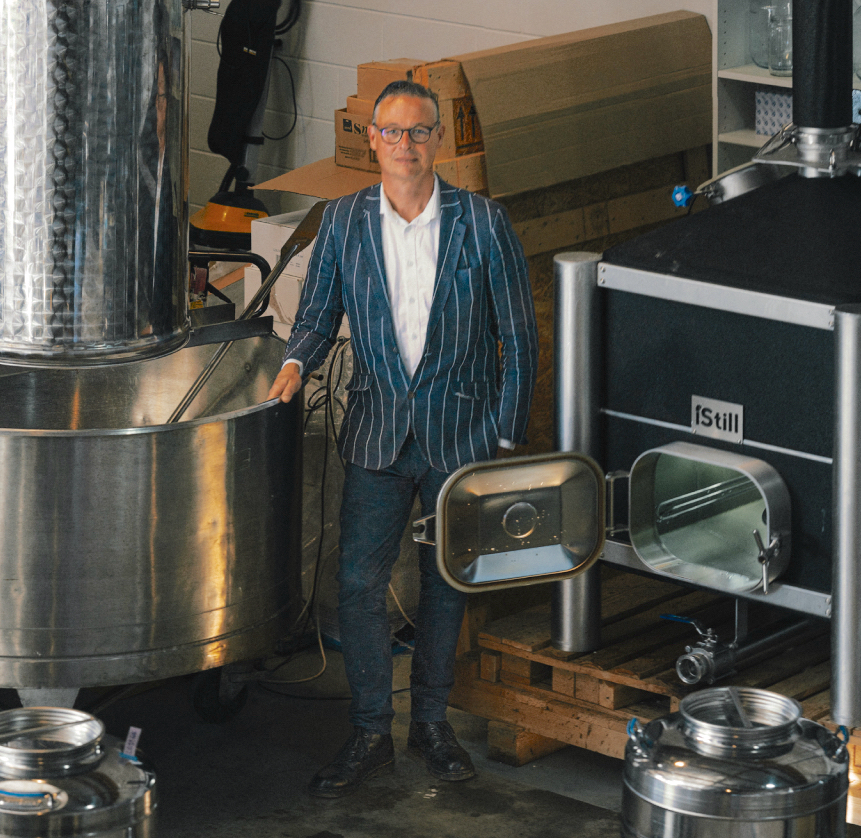
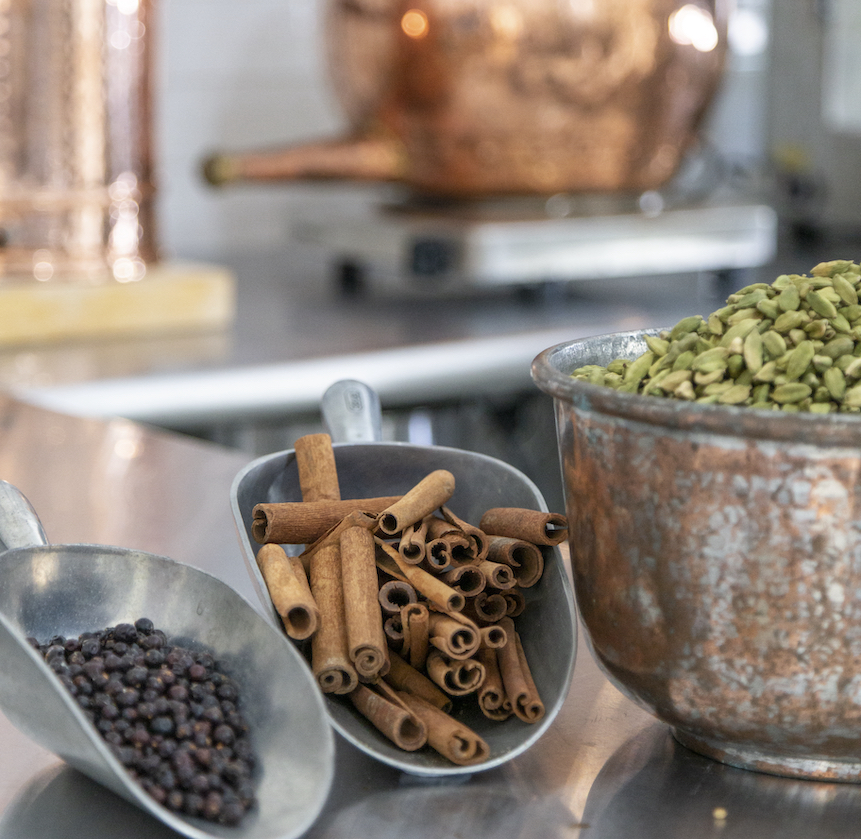
The process also takes time. With some blends requiring up to 10 different botanicals—and some of these distillations taking 10 hours—each batch can take up to two weeks to make. It’s also important to have excellent cleaning and hygiene protocols in place, as Will found out that “water-based distillations are far more difficult to handle than alcohol based ones. Alcohol is an excellent extractor of flavour as well as being a powerful cleaning and sterilising agent. Water can be prone to infection and therefore key to our process is keeping our stills and distillery spotlessly clean, as well as all the receptacles and equipment.”
But Di and Will insist that the process is worth it to build up that ‘resonating flavour’ they aim for in their blends. And because they don’t buy in flavour from the big, commercial flavour houses they can guarantee that their product is 100% alcohol-free.
Production may be vastly different from those first days where Will was working with his single 3L appliance still, but his first still very much a part of things. “We still use our 3L Appliance still in every batch of our London Dry to distil the orris root that goes in every batch, to add the hint of florals to the nose.”
Ecology blends (including new limited releases) are available on their website here. And if you’d like to learn to distil and start experimenting with flavour, you can start off just as Will did, with one of our courses or workshops.
And finally, let’s just take a moment to appreciate the iconic little still that kick-started this transformation from hobbyist to expert distiller, one of our favs—the 3L Appliance.
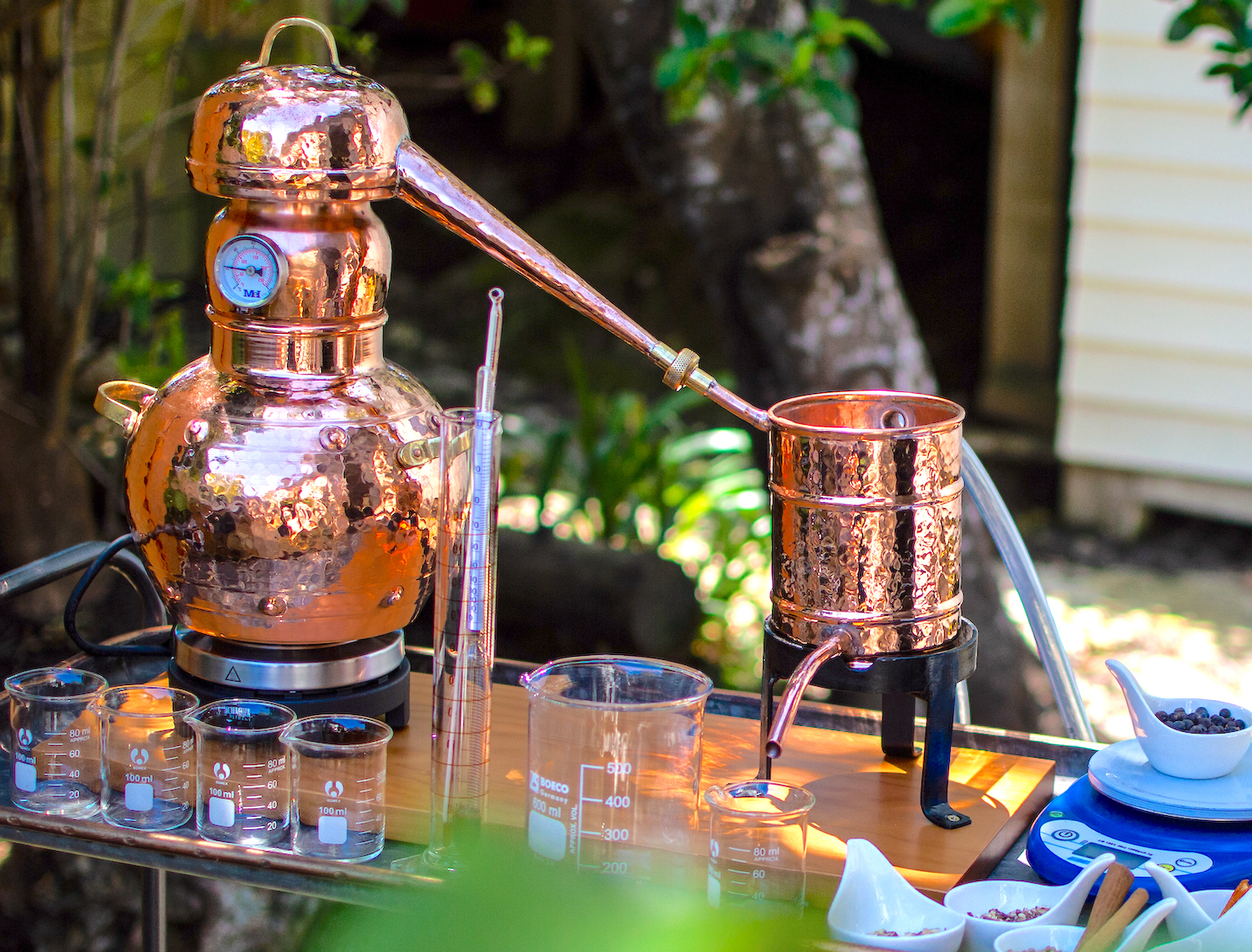
–by Jess Culpan
